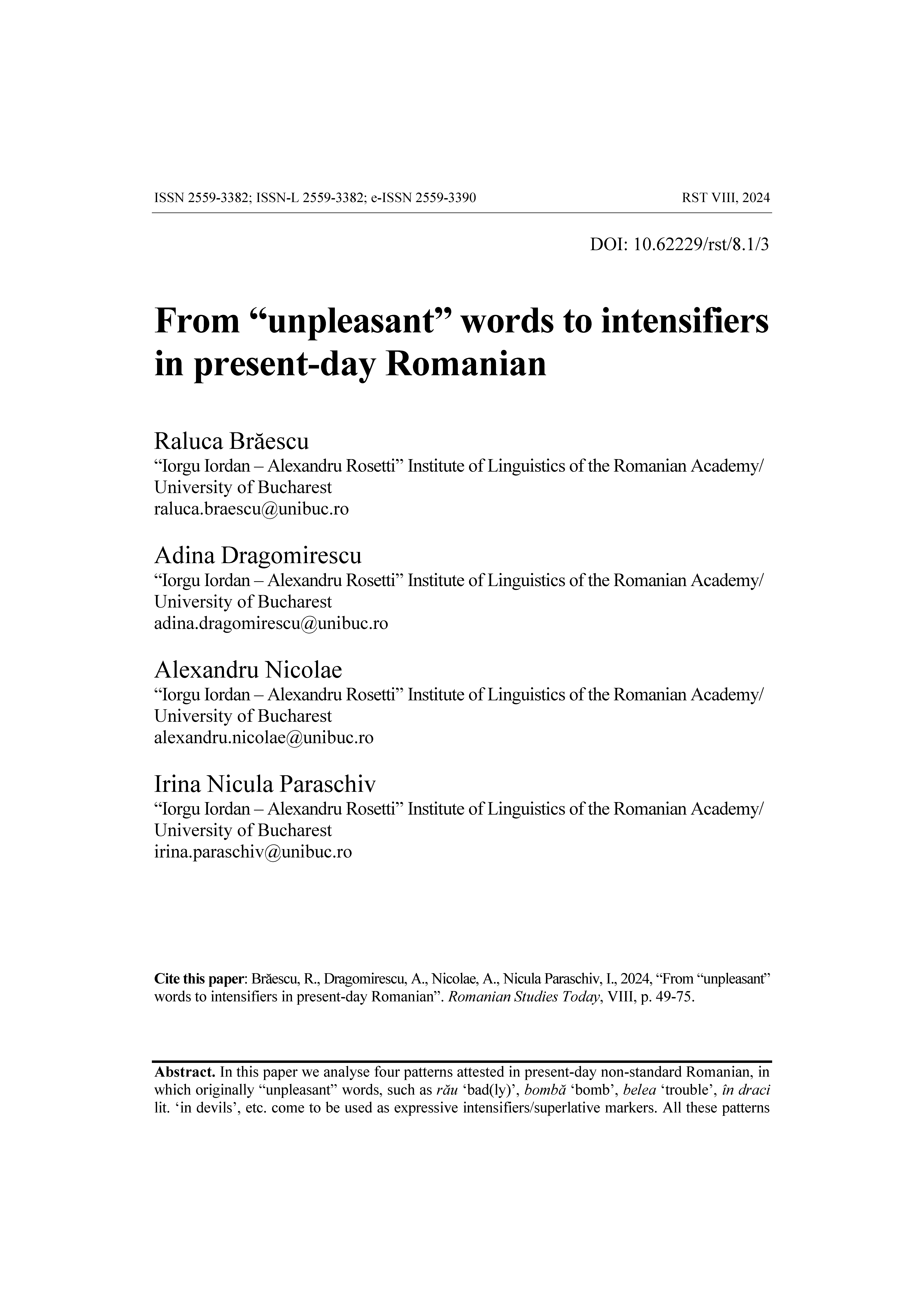From “unpleasant” words to intensifiers in present-day Romanian
DOI:
https://doi.org/10.62229/rst/8.1/3Cuvinte cheie:
non-standard Romanian, intensifier, superlative, “unpleasant” words, semantic bleachingRezumat
In this paper we analyse four patterns attested in present-day non-standard Romanian, in which originally “unpleasant” words, such as rău ‘bad(ly)’, bombă ‘bomb’, belea ‘trouble’, în draci lit. ‘in devils’, etc. come to be used as expressive intensifiers/superlative markers. All these patterns have in common morphosyntactic restrictions on the words involved and a certain degree of semantic bleaching: whereas certain intensifiers are restricted to words (particularly adjectives) expressing negative qualities, others lose their original negative meaning, being compatible with words expressing positive qualities. Our analysis is based on corpus study (on CoRoLa) and on a questionnaire we applied in November 2024.




